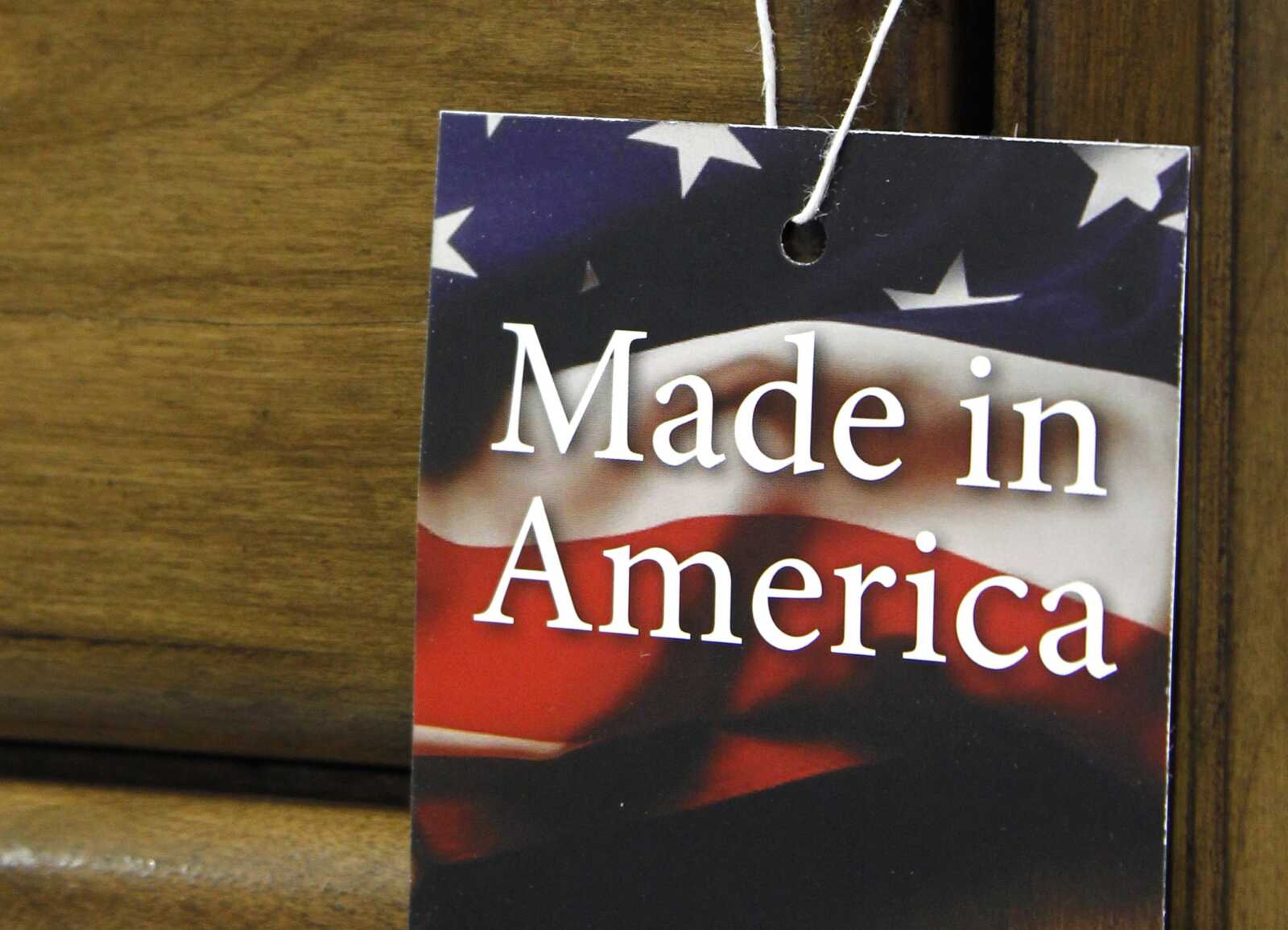Poll: Americans prefer low prices to items 'Made in the USA'
WASHINGTON -- The vast majority of Americans say they prefer lower prices instead of paying a premium for items labeled "Made in the USA," even if it means those cheaper items are made abroad, according to an Associated Press-GfK poll. While presidential candidates such as Donald Trump and Bernie Sanders are vowing to bring back millions of American jobs lost to China and other foreign competitors, public sentiment reflects core challenges confronting the U.S. economy...
WASHINGTON -- The vast majority of Americans say they prefer lower prices instead of paying a premium for items labeled "Made in the USA," even if it means those cheaper items are made abroad, according to an Associated Press-GfK poll.
While presidential candidates such as Donald Trump and Bernie Sanders are vowing to bring back millions of American jobs lost to China and other foreign competitors, public sentiment reflects core challenges confronting the U.S. economy.
Incomes barely have improved, forcing many households to look for the most convenient bargains instead of goods made in America.
Employers seek workers with college degrees, leaving those with only a high-school diploma, who once would have held assembly-line jobs, in the lurch.
And some Americans who work at companies with clients worldwide see themselves as part of a global market.
Nearly three in four said they would like to buy goods manufactured inside the United States, but those items are often too costly or difficult to find, according to the survey released Thursday.
A mere 9 percent said they only buy American.
Asked about a real-world example of choosing between $50 pants made in another country or an $85 pair made in the United States -- one retailer sells two such pairs made with the same fabric and design -- 67 percent said they'd buy the cheaper pair.
Only 30 percent would pony up for the more expensive American-made one.
People in higher-earning households earning more than $100,000 a year are no less likely than lower-income Americans to say they'd go for the lower price.
"Low prices are a positive for US consumers -- it stretches budgets and allows people to save for their retirements, if they're wise, with dollars that would otherwise be spent on day-to-day living," said Sonya Grob, 57, a middle-school secretary from Norman, Oklahoma, who described herself as a "liberal Democrat."
But Trump and Sanders have galvanized many voters by attacking recent trade deals.
From their perspective, layoffs and shuttered factories have erased the benefits to the economy from reduced consumer prices.
"We're getting ripped off on trade by everyone," said Trump, the Republican front-runner, at a Monday speech in Albany, New York. "Jobs are going down the drain, folks."
The real-estate mogul and reality television star has threatened to shred the 1994 North American Free Trade Agreement with Mexico and Canada.
He also has threatened to slap sharp tariffs on China in hopes of erasing the overall $540 billion trade deficit.
Economists doubt Trump could deliver on his promises to create the first trade surplus since 1975.
Many see the backlash against trade as frustration with a broader economy coping with sluggish income gains.
Sanders, the Vermont senator battling for the Democratic nomination, has pledged to end the exodus of jobs overseas.
"I will stop it by renegotiating all of the trade agreements that we have," Sanders told the New York Daily News editorial board earlier this month, saying the wages paid to foreign workers and environmental standards would be part of any deal he would strike.
Still, voters are divided as to whether free-trade agreements hurt job creation and incomes.
Connect with the Southeast Missourian Newsroom:
For corrections to this story or other insights for the editor, click here. To submit a letter to the editor, click here. To learn about the Southeast Missourian’s AI Policy, click here.








